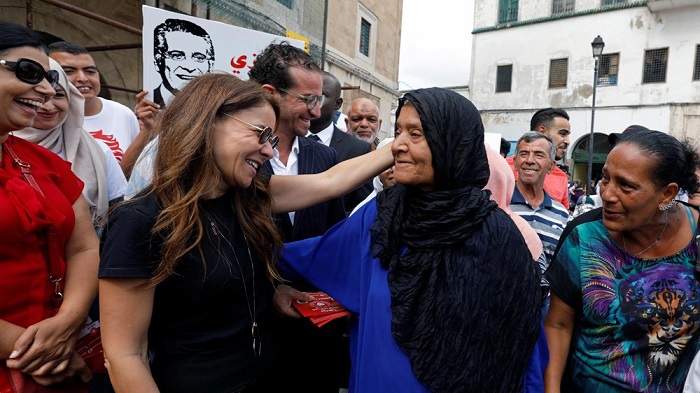
Tunis: Tunisians headed to the polls on Sunday to elect their representatives at the popular assembly, in the second such vote since the 2011 revolution.
The contest for the 217-member chamber comes three weeks after the first round of a presidential election, which saw two relative outsiders garner the most ballots and advance to a runoff vote, which will take place on October 13.
Here is a look at the candidates and the issues on Sunday's vote, as well as the importance of parliament to Tunisia's political system.
Tunisia has 220 registered political parties, but only 10 of them are fielding candidates in all 33 districts.
Among those are former ruling coalition partners Nidaa Tounes and Ennahdha, two parties that in the last election in 2014 won a majority of votes and helped form a national unity government.
During its time in office, the coalition government came under heavy criticism after largely failing to address the country's economic woes, with the unemployment rate hovering above 15 per cent and rising to more than 30 per cent in the marginalised interior regions.
Some analysts believe the advance of two political novices - constitutional law professor Kais Saied and detained populist Nabil Karoui - to the second round of voting in the country's presidential election signalled Tunisians' frustration with establishment parties.
A 2019 survey by the International Republican Institute found that 70 per cent of the population distrusted political parties, while 59 per cent somewhat or greatly distrusted parliament.
Notwithstanding Saied's lead in the presidential poll, independent candidates have seen their share of the vote increase over the years.
In 2018 local elections, they won 33 per cent of the vote, beating Ennahdha and Nidaa Tounes's 29 per cent and 22 per cent, respectively.
More than seven million people are eligible to vote on Sunday, roughly two-and-a-half million more than last year's local polls.
Power has historically been concentrated in the hands of the presidency.
Following the 2011 uprising, Tunisians opted for a mixed parliamentary-presidential system with the latter's role largely confined to foreign affairs and defence.
Under the terms of the 2014 constitution, parliament is charged with nominating a prime minister, who is then tasked with forming a government and running day-to-day affairs.
In recent years, friction between the late President Beji Caid Essebsi and Prime Minister Youssef Chahed led to policy initiatives being delayed on numerous occasions and fuelled resentment of this "hybrid" system.
Tunisia's closed-list electoral system means that voters cast their ballot in favour of a single list in their home districts.
Independent candidates can still run for office but must present their candidacies as part of a wider list, alongside that of a party or other independents.
A party would need to secure 109 seats to govern on its own, but such a result seems unlikely under Tunisia's current proportional representation system.
Of the 1,572 confirmed lists, 687 are party lists, 722 are independent and 163 are coalition.
Seats are awarded in accordance with the proportional representation principle - for example, if a party wins 80 per cent of the vote in a 10-member district, it will be granted eight of the seats available; if it wins 70 per cent, it will get seven of the seats, and so on.
Both Ennahdha and Karoui's Qalb Tounes, or Heart of Tunisia, parties are running on an anti-establishment platform.
Rachid Ghannouchi, Ennahdha's leader, has sought to cement his party's association with Saied, a fiercely independent academic who advocates radical decentralisation of power and the right to remove elected officials during their mandate.
"The only revolutionary force now is Ennahdha, which faces off with a counter-revolutionary rival Qalb Tounes, which represents the old regime. Both forces are on the lead and with no one else in between," he said.
Karoui, on the other hand, has promised to address the needs of those most vulnerable.
The media magnate's philanthropic initiatives, broadcast on his Nessma TV channel, have won him a big following across the country.
If given a majority, his party's priority will be to enact legislation to combat poverty.
But such a result is highly unlikely, and with both Ennahdha and Qalb Tounes refusing to enter a coalition government with one another, there are fears of yet another political crisis.